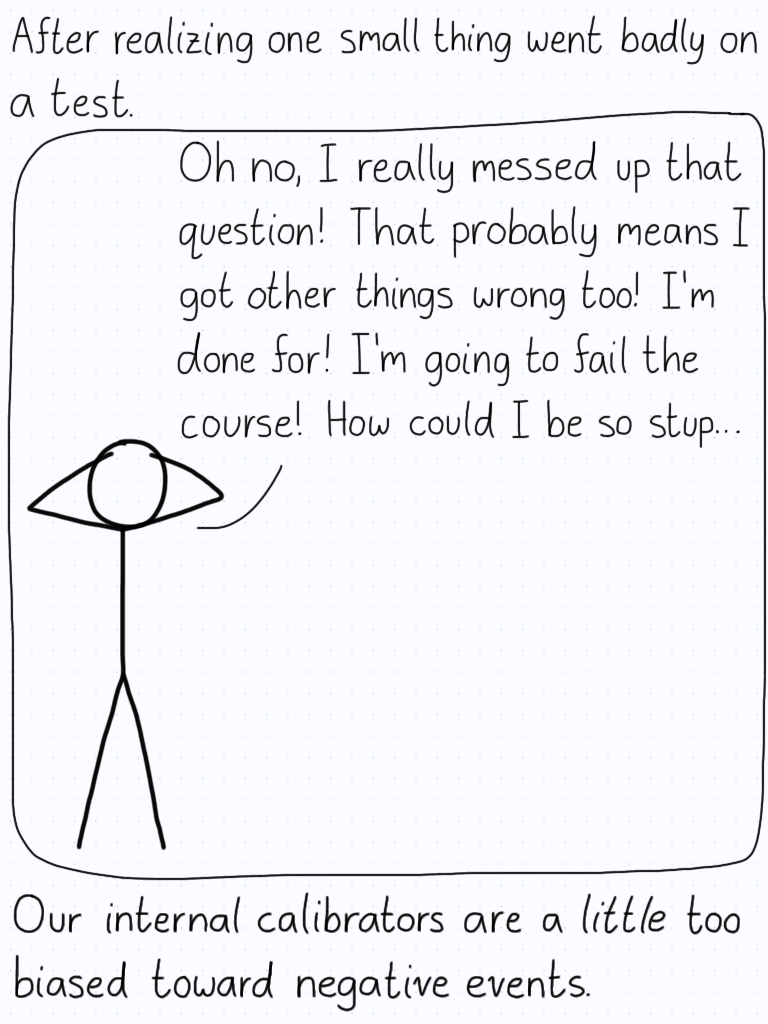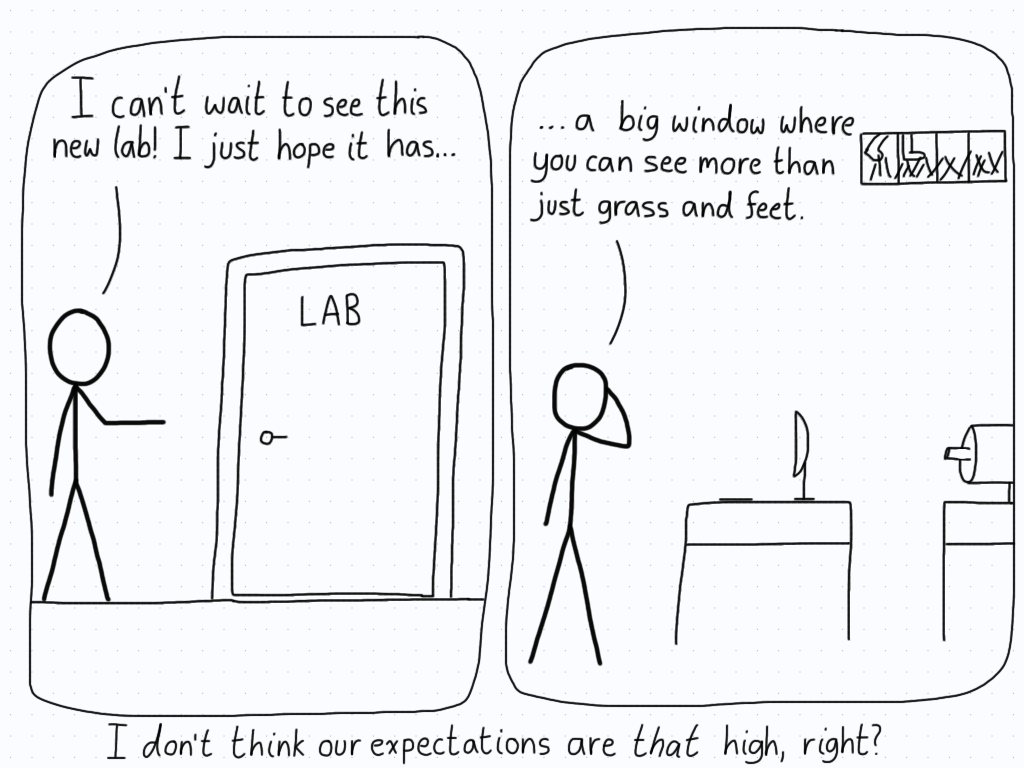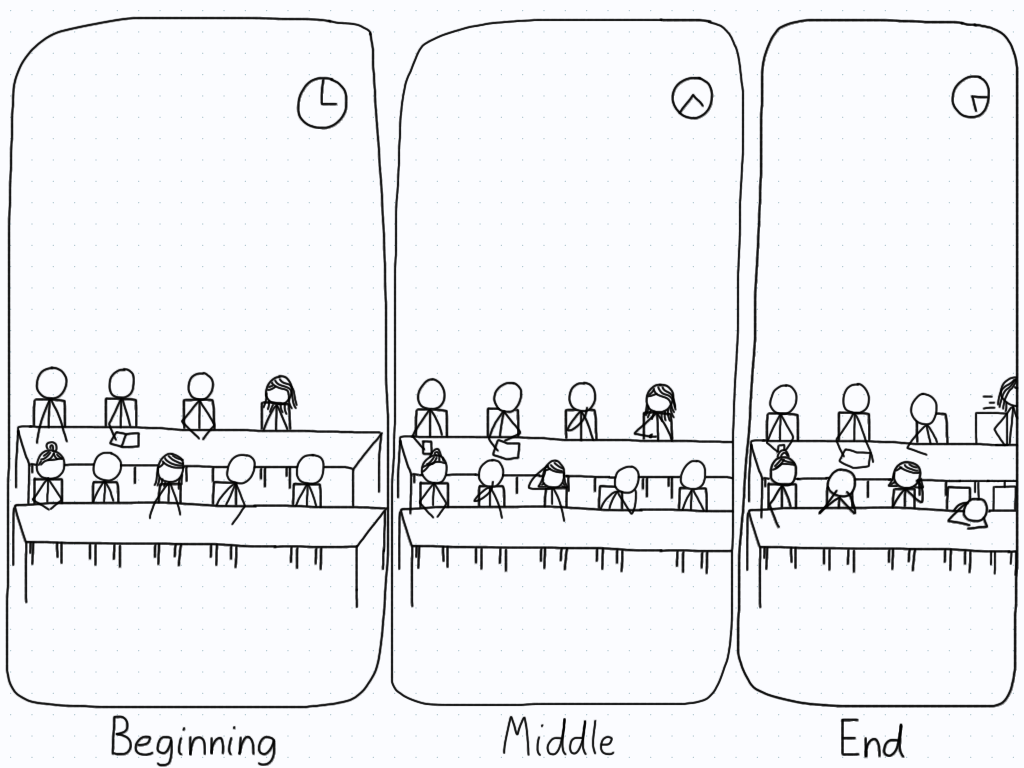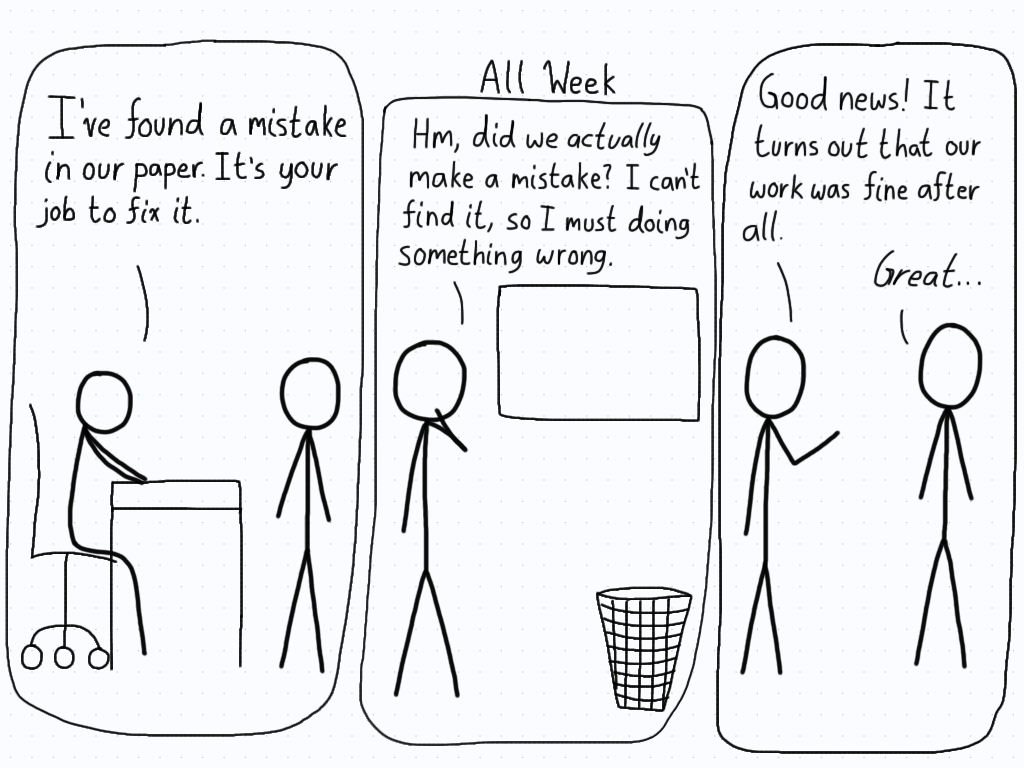 Comics about mathematics, science, and the student life.
Comics about mathematics, science, and the student life.
Bad Calibration

I am notorious for getting into these thought cycles. I go from one thing wrong to imagining that I’ve somehow forgotten everything about physics, and sooner than later I’ve convinced myself that I know nothing.
18 Nov 2019Prestige

Once I started noticing this in magazines and other science outreach publications, I couldn’t unsee it. You’re welcome.
15 Nov 2019Intermediate Steps

“I don’t know why they don’t teach this in school anymore. I’ve found it to be very helpful in getting through material quickly.”
13 Nov 2019Low Expectations

Maybe I was just unlucky with where I studied, but the windows reminded me of a prison.
08 Nov 2019Well-Known

I apologize to the mathematicians that may be offended. Don’t worry, my research problems are probably just as well known!
06 Nov 2019Resiliency

I aspire to be the student on the right, but I know myself well enough to admit that my reaction is usually the one on the left.
04 Nov 2019Lecture Audience

I wonder if teachers play a mental game of seeing who can hang on in the lecture the longest.
01 Nov 2019Popular Physics

“We can’t skip the mathematics. It’s the most important part!”
“If that was true, why didn’t my book mention any of that?”
28 Oct 2019
